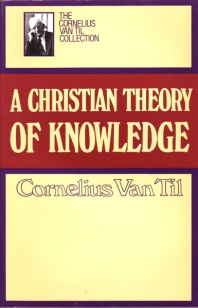 “The two systems, that of the non-Christian and that of the Christian, differ because of the fact that their basic assumptions or presuppositions differ. On the non-Christian basis man is assumed to be the final reference point in predication. Man will therefore have to seek to make a system for himself that will relate all the facts of his environment to one another in such a way as will enable him to see exhaustively all the relations that obtain between them. In other words, the system that the non-Christian has to seek on his assumption is one in which he himself virtually occupies the place that God occupies in Christian theology. Man must, in short, be virtually omniscient. He must virtually reduce the facts that confront him to logical relations; the “thingness” of each thing must give up its individuality in order that it may be known; to be known, a thing or fact must be wholly known by man…
“The two systems, that of the non-Christian and that of the Christian, differ because of the fact that their basic assumptions or presuppositions differ. On the non-Christian basis man is assumed to be the final reference point in predication. Man will therefore have to seek to make a system for himself that will relate all the facts of his environment to one another in such a way as will enable him to see exhaustively all the relations that obtain between them. In other words, the system that the non-Christian has to seek on his assumption is one in which he himself virtually occupies the place that God occupies in Christian theology. Man must, in short, be virtually omniscient. He must virtually reduce the facts that confront him to logical relations; the “thingness” of each thing must give up its individuality in order that it may be known; to be known, a thing or fact must be wholly known by man…
The system that Christians seek to obtain may, by contrast, be said to be analogical. By this is meant that God is the original and that man is the derivative. God has absolute self-contained system within himself. What comes to pass in history happens in accord with that system or plan by which he orders the universe. But man, as God’s creature, cannot have a replica of that system of God. He cannot have a reproduction of that system. He must, to be sure, think God’s thoughts after him; but this means that he must, in seeking to form his own system, constantly be subject to the authority of God’s system to the extent that this is revealed to him.”
– Cornelius Van Til, A Christian Theory of Knowledge p.15-16
Reblogged this on Talmidimblogging.
LikeLiked by 1 person
Going to share this in our round up!
LikeLiked by 1 person
Thanks Slim Jim! I look forward to your round ups.
LikeLiked by 1 person
=)
LikeLiked by 1 person